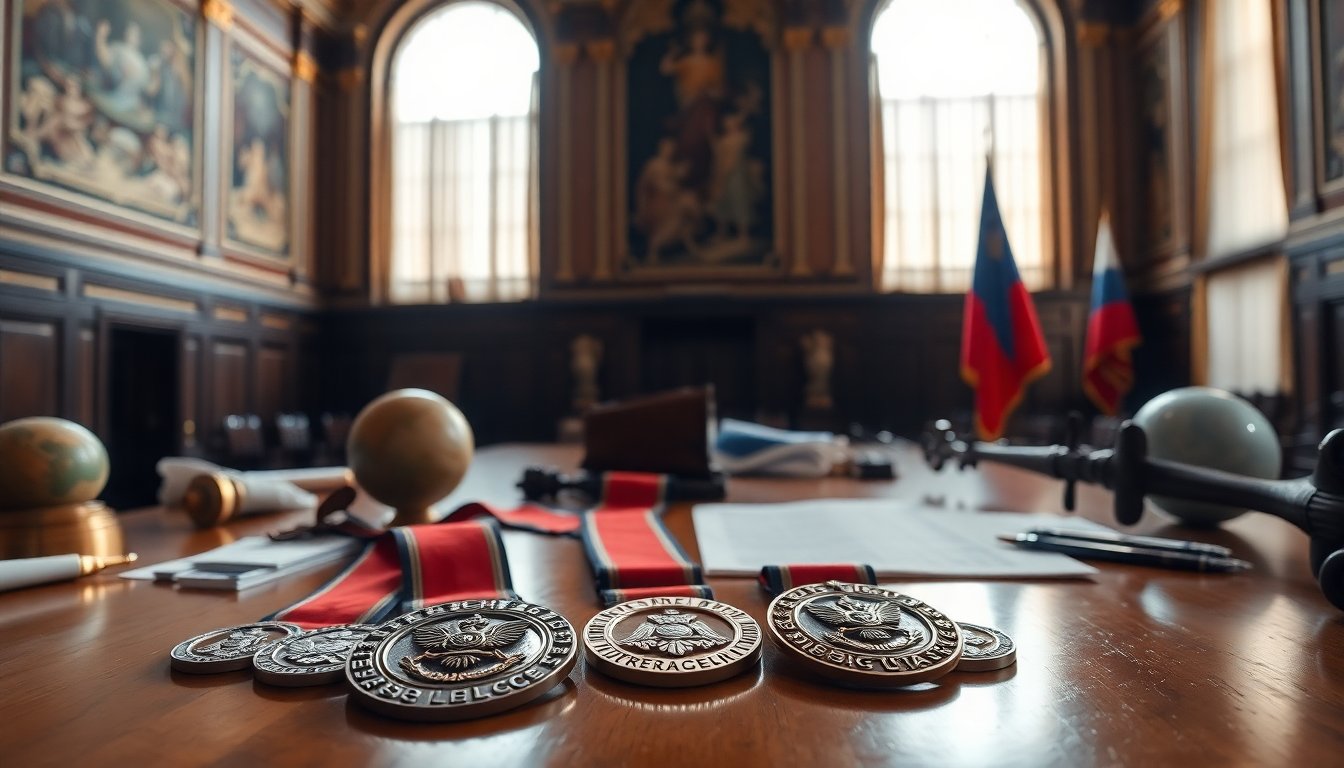Table of Contents
“`html
Justus Frantz, a prominent German conductor and pianist, is at the center of controversy following his receipt of the Order of Friendship from Russian President Vladimir Putin. This award, presented during a ceremony in Moscow, has generated significant scrutiny in Germany, particularly among political figures who view his acceptance as a concerning affiliation with a contentious regime.
During the ceremony, set against the backdrop of ongoing tensions between Russia and the West, Putin commended Frantz for his efforts to enhance cultural relations between Germany e Russia. However, the timing and context of this honor have incited considerable backlash, leading some German lawmakers to push for a reevaluation of Frantz’s own accolades.
The political fallout from an artistic recognition
Following Frantz’s award, criticism swiftly emerged from various political factions. Notably, Roland Theis, a member of the conservative Christian Democratic Union, has urged German President Frank-Walter Steinmeier to consider revoking Frantz’s Order of Merit, an honor that acknowledges significant contributions to Germany.
Theis expressed concern, stating, “Anyone who chooses to associate with a dictator involved in hostile military actions against our nation cannot continue to hold such a prestigious honor.” His remarks reflect a broader sentiment among those who perceive Frantz’s acceptance of the award as a betrayal of German interests and values.
Frantz’s history and connections to Russia
Frantz, known for his performances with major orchestras like the Berlin Philharmonic and the New York Philharmonic, has long admired Russian composers such as Pyotr Tchaikovsky and Sergei Rachmaninoff. His efforts to promote Russian music have been significant throughout his career. He signed a controversial Manifesto for Peace advocating for negotiations with Russia, further complicating his public image.
This admiration, while rooted in artistic appreciation, has become intertwined with geopolitical concerns, raising questions about the responsibilities of artists in politically charged contexts. Some argue that Frantz’s accolades may be perceived as implicit support for the Kremlin’s actions.
A response from the public and the music community
The public and broader music community have responded with mixed sentiments. While many support Frantz’s artistic contributions and view his recognition as a form of cultural diplomacy, others contend that accepting the award amid ongoing international conflicts conveys a troubling message. This divide mirrors a larger discourse on the intersection of art and politics, and whether artists can avoid political entanglements in a world dove le loro affiliazioni hanno un peso significativo.
Amid the criticism, Frantz expressed pride in receiving the award, emphasizing his lifelong commitment to promoting cultural exchange. He stated, “It is a great honor for me to be here today and to receive such an important order,” indicating his focus on cultural significance rather than political implications.
The implications for German-Russian relations
This incident underscores the delicate state of German-Russian relations, which have faced strain due to ongoing sanctions and political disputes. As tensions rise, the actions of prominent individuals like Frantz are subjected to heightened scrutiny. The award has ignited discussions not only about personal choices but also about the broader implications for cultural diplomacy in times of conflict.
As the situation progresses, the future of cultural exchange between Germany and Russia remains uncertain. Frantz’s case serves as a reminder of the complexities that arise when art and politics converge, prompting reflections on the fragile balance between personal convictions and public perception.
“`


